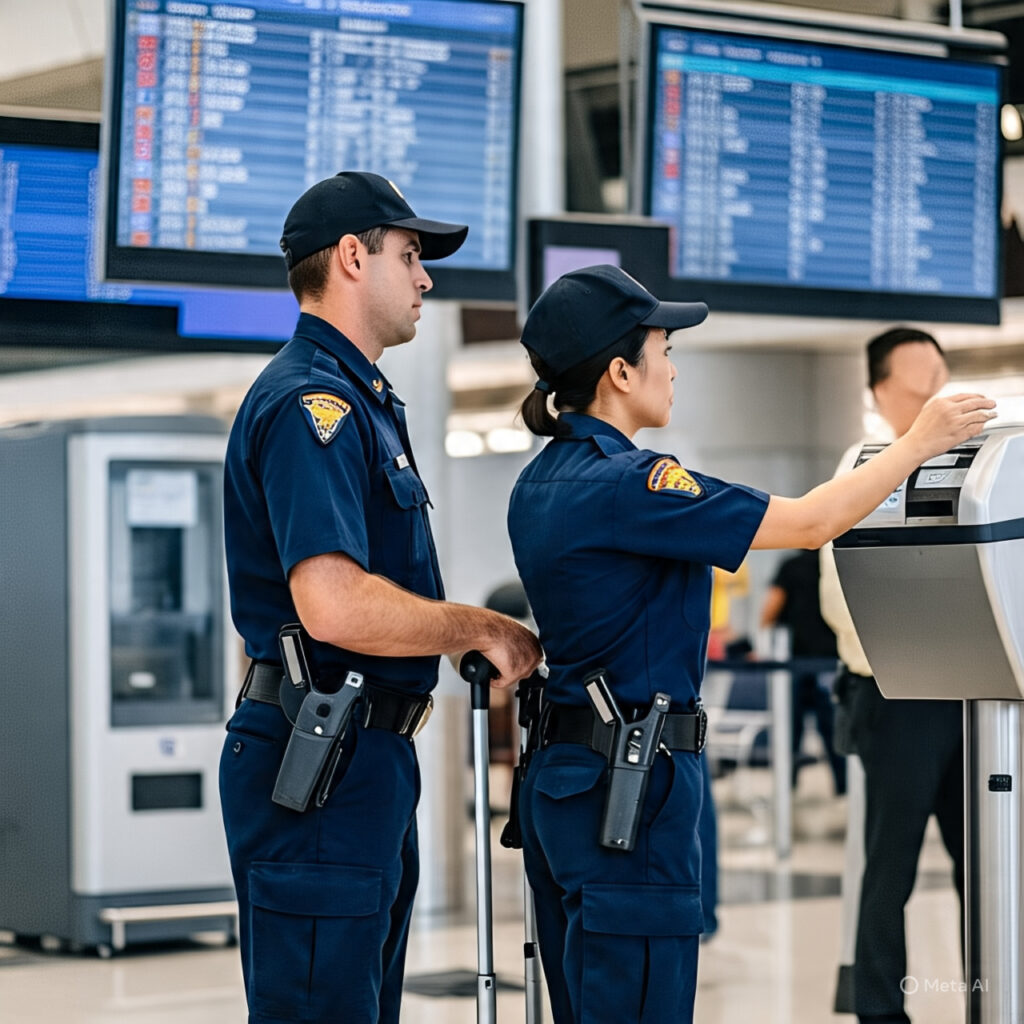
The Role of Security Guards in Airport Security
Airport security is a critical component of global transportation infrastructure. With millions of travelers passing through terminals daily, maintaining safety, order, and operational efficiency is a top priority. Security guards play a pivotal role in ensuring these goals are met. From monitoring passengers to handling emergencies, their presence enhances the overall security landscape of any airport.
Understanding Airport Security Infrastructure
Airports are complex environments with a mix of restricted areas, public spaces, and sensitive checkpoints. The security infrastructure includes CCTV systems, screening equipment, and personnel trained to enforce protocols. Within this system, guards act as a human safeguard, responding to situations that technology alone cannot handle effectively.
The Growing Importance of Physical Security Presence
While surveillance cameras and automated systems are essential, the presence of trained security guards adds a human layer of judgment and intervention. Guards can interpret suspicious behavior, provide reassurance to travelers, and respond quickly to real-time incidents, making them indispensable in high-traffic environments like airports.
Monitoring and Surveillance Support
Security guards are often assigned to monitor surveillance systems and maintain constant awareness of activities in and around terminals. Their job isn’t just to watch but to interpret and act on what they see, ensuring any potential threat is addressed before it escalates.
Crowd Management and Passenger Assistance
During peak travel seasons, airports can become overwhelmingly crowded. Security personnel are essential in managing these crowds, guiding passengers, preventing bottlenecks, and ensuring that everyone moves safely through checkpoints and terminals without unnecessary delay.
Access Control and Restricted Area Management
Guards are responsible for enforcing access control policies in restricted areas such as runways, baggage zones, and staff-only facilities. By checking identification and validating credentials, they prevent unauthorized access and help maintain a secure operational environment.
Screening Support and Emergency Response
At security checkpoints, guards assist screening officers by managing queues and ensuring passengers comply with screening procedures. In emergencies—such as fire outbreaks, medical situations, or security threats—they are the first to respond, taking control of the situation until specialized responders arrive.
Handling Suspicious Behavior and Threat Identification
Guards are trained to recognize behavioral red flags that may indicate a potential threat. Whether it’s an unattended bag or a person behaving unusually, security personnel take proactive steps to investigate and neutralize the risk before it impacts airport operations.
Working with Law Enforcement and Airport Authorities
Security guards frequently collaborate with airport police, customs officials, and other agencies. This coordination ensures a swift response to incidents and a unified approach to airport security. Guards often serve as the first point of contact in escalating situations to appropriate authorities.
Maintaining Peace and Order During Delays and Disruptions
Flight delays and cancellations can lead to frustration among passengers. Guards help maintain calm and order, defusing tense situations and ensuring travelers are informed and safe. Their communication skills are just as vital as their physical presence in these scenarios.
Protecting Airport Infrastructure and Property
Beyond protecting people, guards also safeguard airport assets. This includes terminals, baggage systems, aircraft, and technical equipment. Preventing vandalism, theft, or sabotage is a key part of their daily responsibilities.
Adapting to Evolving Threats and Technologies
As threats evolve, so does airport security. Guards receive ongoing training in new technologies and emerging risks, such as cyber threats or drone intrusions. This adaptability makes them a critical component in modern security strategies.
The Role of Private Security Firms in Airports
Many airports partner with private firms to provide tailored security solutions. For example, engaging expert providers like Security Guard Services in Australia ensures personnel are trained for high-risk, high-traffic environments. These partnerships contribute to efficient, reliable, and cost-effective airport operations.
The Value of Static Security Guard Deployment
Strategically positioned guards at fixed locations such as gates, entrances, and loading docks create a strong deterrent to unauthorized activities. Providers like this static security guard service offer well-trained professionals capable of monitoring sensitive areas without distraction, ensuring long-term vigilance and response readiness.
Enhancing Traveler Confidence and Airport Reputation
Visible, professional security guards not only deter crime but also reassure travelers. Their presence helps foster a sense of safety and professionalism, contributing to a positive airport experience and strengthening the airport’s reputation.
Training and Professionalism in Airport Security Personnel
Security guards assigned to airport duties undergo rigorous training that covers conflict resolution, emergency procedures, legal compliance, and cultural sensitivity. Their professionalism directly influences how smoothly operations run and how safely passengers move through the airport.
Conclusion: Security Guards as the Backbone of Airport Safety
In the dynamic, high-stakes environment of an airport, security guards are more than just watchful eyes—they are protectors, problem-solvers, and public relations representatives. Their multifaceted role ensures that passengers, staff, and infrastructure remain secure, day in and day out.
FAQs
1. Why are security guards essential at airports?
They provide physical security, manage crowds, handle emergencies, and work alongside technology to ensure passenger safety.
2. Do airport guards only work at security checkpoints?
No, they also monitor restricted zones, support surveillance systems, and protect infrastructure.
3. What training do airport security guards receive?
They undergo specialized training in emergency response, legal compliance, and behavioral analysis.
4. How do guards respond to suspicious activity?
They investigate immediately, follow security protocols, and coordinate with airport authorities when necessary.
5. Are private security firms involved in airport operations?
Yes, many airports hire professional security firms to provide specialized personnel for enhanced protection.
6. What’s the difference between static and mobile security guards at airports?
Static guards stay at fixed locations for continuous monitoring, while mobile guards patrol different zones for broader coverage.




